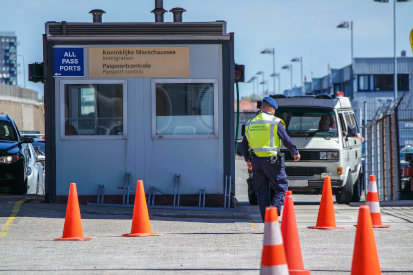Counter-terrorism is one of INTERPOL’s main areas of focus. In its 2019 annual report, it outlines its recent activity in this area. Key achievements include operations that helped to catch terrorists and international criminals.
INTERPOL on the ground
When picturing the work of INTERPOL, one may conjure an image of a sophisticated control centre managing the exchange of cross-border information, far removed from the action in the field. While its criminal databases are at the heart of its work, INTERPOL is also active on the ground, deploying teams and coordinating operations to combat terrorism.
Multi-agency operation catches 16 terrorists
INTERPOL recently led Operation Neptune II, a multi-agency operation that used systematic border control and random searches at seven seaports to intercept suspects who were using maritime routes between North Africa and Southern Europe.
The operation resulted in:
- 16 terrorists arrested.
- 31 active investigative leads.
- The apprehension of additional criminals involved in human trafficking, people smuggling, firearms and drug trafficking, attributed to real-time checks against INTERPOL databases.
Incident Response Teams
INTERPOL deploys Incident Response Teams (IRTs) to assist national authorities in conducting investigations.
In April 2019, INTERPOL deployed an IRT to Sri Lanka to help investigate a series of bomb attacks at churches and hotels. This contributed to the arrest of one of the alleged ringleaders in the Middle East, following the publishing of an INTERPOL Red Notice.
The IRT assisted with:
- Digital forensics.
- Criminal intelligence analysis.
- Law enforcement coordination.
- Post-blast investigation.
- Explosives expertise.
- Victim identification.
Fighting chemical terrorism
Information is power, ensuring those involved in the fight against terrorism are aware of emerging threats and the best ways to combat them.
INTERPOL is addressing the rising threat of chemical terrorism, facilitating the exchange of information on this topic through a range of initiatives.
New manual sheds light on the darknet
Biological and chemical terrorism pose an increasing threat to society, and criminals use the darknet to exchange information and conduct transactions.
INTERPOL produced an operational manual on Investigating Biological and Chemical Terrorism on the Darknet to assist counter-terrorism and cybercrime officers to better detect key indicators of this activity.
Global congress on chemical security
INTERPOL led a congress with approximately 200 cross-sectoral experts, including representatives of the chemical industry, to address the increasing threat of chemical and explosives terrorism to global peace and security.
A focus on data
The collection and analysis of data is key to INTERPOL’s work and fuelling its powerful criminal databases. The annual report provides insight into how the organisation continually works to enhance its data processes.
Training officers to collect biometric data from prison inmates
In September 2019, INTERPOL delivered training in which biometric data was collected from 90 terrorist suspects in a Burkina Faso prison.
This data helped to prepare Blue Notices, which seek information about a person’s identity or their connection to a crime.
Analysing key data on the spot
Following the attack on an army base in Mali in November 2019, INTERPOL assisted local investigators to examine data collected from suspected terrorists arrested at the Mali-Niger border.
This involved analysing data from seized electronic devices such as phone numbers, messages, emails, images and GPS coordinates. The data was used to extract 600 names and matched biometric information on suspected foreign terrorist fighters providing input for 82 Blue Notices to request additional information.
Conclusion
Counter-terrorism is one of the main focuses of INTERPOL’s work. While its use of criminal databases and the instruments this data powers such as Red Notices are key to facilitating effective cooperation between multiple international agencies, INTERPOL is also active on the ground. Its operations are having a significant impact on catching terrorists and international criminals who aim to evade law enforcement by crossing borders.



